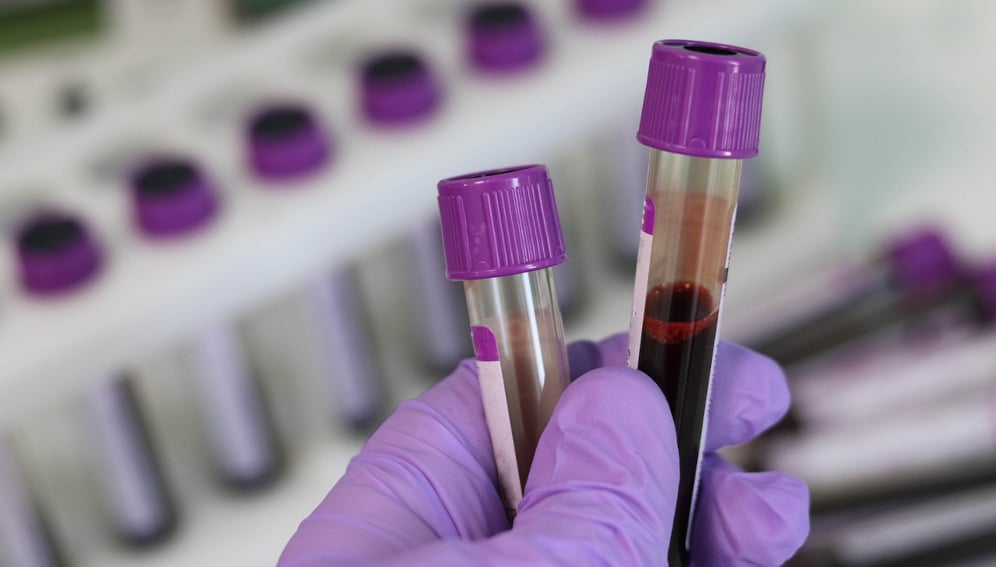
The World Water Film Festival, hosted by the Columbia Climate School last month, could be considered an antidote to the climate fatigue and apathy many sustainability advocates are feeling in this moment.
The festival addressed some of the most significant challenges and exciting prospects we face when it comes to humanity’s relationship with water, with 20 short and feature films by water advocates from around the world. It also hosted a diverse group of speakers for a series of workshops and panels covering everything from plastic pollution in water to grey water recycling and how coastal cities are adapting to climate change. There were events for kids too, like family-friendly films and “merpeople” to talk to kids about water.
Robert Strand, executive director of the nonprofit festival, said his dream when he created the World Water Film Festival in 2022 was to “one day have filmmakers, policymakers and scientists on stage together to talk about important topic”—a dream that has now become a reality.
On Sunday, the afternoon session opened with a screening of actor and filmmaker Matthew Modine’s short film “Ripple Effect” (available here), which shared stories from inspiring individuals whose climate actions aim to coalesce and build into larger movements. “Water is the most important thing on our planet,” Modine told the audience. “When we go looking for life on other planets, water is the first thing we look for.”

“We have to see our individual efforts as part of a global movement,” Modine narrates in the film. “If one person takes action, it will seem insignificant, a mere ripple. But if 7 billion people take action, that ripple becomes a powerful wave.”
One person who embodies this thinking is Beizhan Yan, a Lamont research professor at Lamont-Doherty Earth Observatory and a geochemist who has been researching the pollutants in our water systems. Earlier this year, Yan and associates published a headline-stealing study on the presence of nanoplastics in bottled water
After the screening, Yan told attendees that “by 2023, approximately 6 billion tons of plastic waste will have been discarded into the environment.” That number is staggering—especially given the understanding that these substances can’t easily decompose; instead, they disintegrate into smaller and smaller pieces. The more minute these particles get, the easier it is for these substances to cross the blood-brain barrier and get deep into the lungs, potentially leading to a range of health effects and neurodegenerative diseases, he said. We are also finding concentrations of these substances all over the world—in even the most remote areas, he added.
“If one person takes action, it will seem insignificant, a mere ripple. But if 7 billion people take action, that ripple becomes a powerful wave.”
– Matthew Modine
Yan and his colleagues have been working to better understand what happens to the tiny plastic material from our everyday products and synthetic fibers from our laundry cycles as they break down and end up in our waterways and oceans, and in our bodies.
Importantly, Yan said their findings offer hope that there are ways to change this trajectory. Part of these efforts are now focused on engineered solutions, he said, including filter systems for washing machines that would remove the miniscule plastic particles generated from synthetic materials. Ideally, this will allow us to prevent this type of plastic pollution from entering our oceans in the first place. Yan and his team are also studying the chemical processes that would allow them to effectively dispose of the sludge generated by the filtration process without reintroducing it into the environment through a landfill, he explained.
Audience members could take steps to help make a difference, Yan said during his subsequent Q&A with Modine. For example, Yan noted the Fighting Fibers Act introduced by Senator Jeff Merkley in Oregon, which seeks to control plastic microfiber pollution from laundry by ensuring filtration in washing machines and requiring additional research into the impact of these substances. The general public can assist by reaching out to their senators to help pass this bill and others like it, he added.
The afternoon continued with a screening of “Sludge: A PFAS Uprising,” a documentary from executive producer Modine, about the Maine farmers and their families who sounded the alarm on the forever chemicals showing up in their land, livestock and bloodstreams as a result of mixing sewage sludge with their soil for decades—a process once encouraged by the government and considered safe.
When it comes to plastics, we have to remember there is “no away,” Modine said. We created this problem and “we have a responsibility to one another and to the creatures that surround us” to do something about it, he said.








Leave a Comment